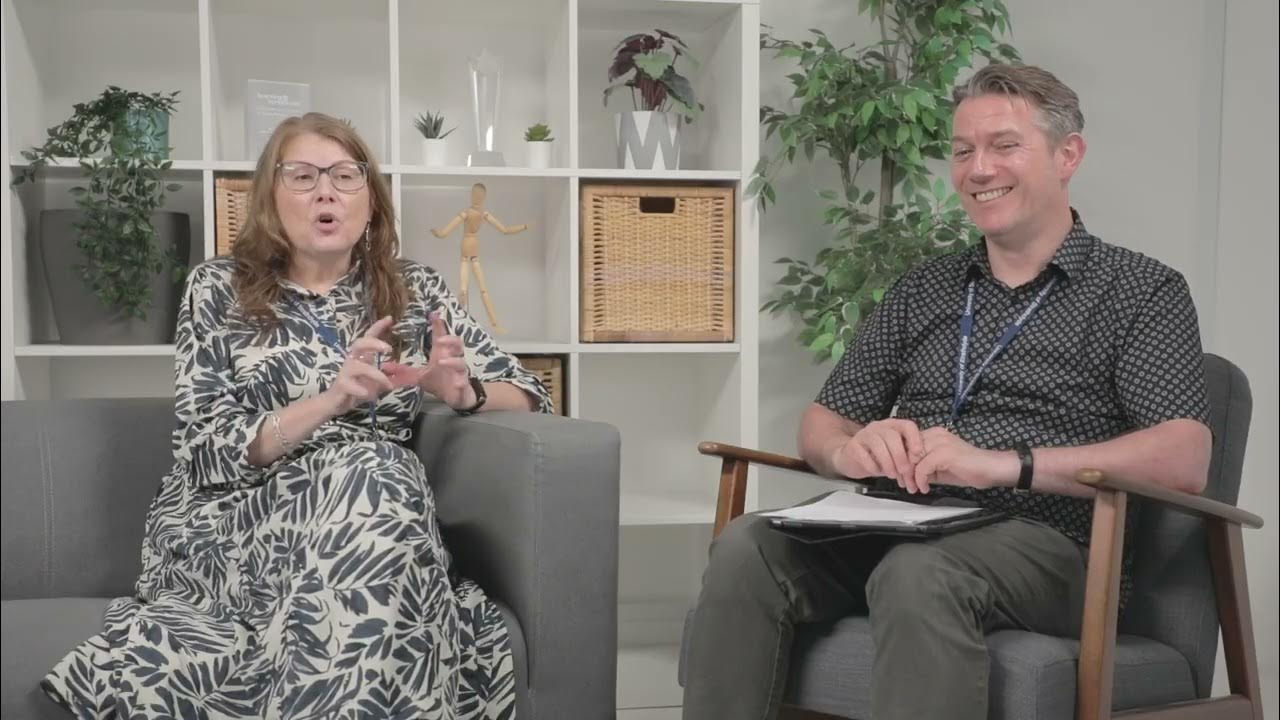How to Study with ADHD | ADHD Student Tips that Actually Work
Summary
TLDRAnna Mascara's video offers strategies for students with ADHD to excel academically without compromising mental health. It defines ADHD and its impact on executive functions, leading to academic challenges. The video suggests using apps like Notability and LiveScribe for note-taking, keeping notepads for capturing thoughts, incorporating procrastination into study plans, and setting auditory cues to refocus. It encourages sharing personal tips and supports the ADHD community.
Takeaways
- 📚 ADHD is a common mental disorder affecting both children and adults, characterized by inattention, hyperactivity, and impulsivity.
- 🎓 Students with ADHD face academic challenges such as prioritizing tasks, staying organized, memorizing, and maintaining focus.
- 👂 Recording lectures and using visual aids like doodles or mind maps can significantly improve focus and retention for ADHD students.
- 📱 Apps like Notability and LiveScribe are recommended for creating comprehensive notes that blend writing, typing, and audio recording.
- 📝 Keeping notepads handy for jotting down thoughts or deadlines can help ADHD students remember important information and ideas.
- 🕒 Incorporating expected procrastination time into study schedules can help ADHD students manage their time more effectively.
- 🎵 Setting auditory cues or reminders, such as alarms or specific songs, can help ADHD students refocus their attention on tasks.
- 🤔 Metacognition, or thinking about one's thinking, can be triggered by auditory cues to help students with ADHD stay on track.
- 📈 Being realistic about the time needed to complete tasks and managing expectations is crucial for students with ADHD to reduce frustration.
- 📊 Sharing personal tips and strategies in the comments can help create a community of support for students with ADHD.
Q & A
What is the main focus of the video by Anna Mascara?
-The main focus of the video is to discuss methods that help students with ADHD study better in college and university, without sacrificing their mental health.
According to the American Psychiatric Association, what is ADHD?
-ADHD is defined as one of the most common mental disorders affecting children, and it can also affect adults. It includes symptoms like inattention, hyperactivity, and impulsivity.
What are some of the academic challenges faced by students with ADHD?
-Students with ADHD may face challenges such as difficulty prioritizing, staying organized, memorizing facts, remembering to complete assignments, and staying focused while reading.
Why is it beneficial for students with ADHD to record their teachers' presentations?
-Recording presentations can help students with ADHD by allowing them to revisit the material and focus on different aspects without the pressure of trying to absorb everything in real-time.
What are two apps/tools recommended for students with ADHD to improve focus and retention during note-taking?
-Notability and LiveScribe are recommended apps/tools for students with ADHD as they help blend writing, typing, and audio recording, and can be beneficial for visual learners.
How can keeping notepads around the house help students with ADHD?
-Having notepads readily available can help students with ADHD capture fleeting thoughts and important reminders, which can aid in remembering deadlines and appointments, and free up mental space for more complex tasks.
What strategy does the video suggest for managing procrastination among students with ADHD?
-The video suggests working with procrastination by including it in the estimated time of task completion and setting fake deadlines to create a sense of urgency and stay on track.
How can auditory cues help students with ADHD maintain focus on their tasks?
-Auditory cues, such as alarms or specific songs, can serve as triggers to refocus the mind and bring awareness back to the task at hand, especially when a student finds their focus drifting.
What does the video suggest about the importance of managing expectations for students with ADHD?
-The video emphasizes the importance of being realistic and managing expectations by acknowledging the likelihood of distractions and incorporating them into study plans to minimize frustration.
How often should students with ADHD set auditory reminders according to the video?
-The video suggests setting auditory reminders, such as alarms, every 30 minutes or using music at specific intervals to regularly check and refocus thoughts.
What is the frequency of Anna Mascara's school-related video uploads?
-Anna Mascara posts school-related videos twice a week, and sometimes even more frequently.
Outlines

Этот раздел доступен только подписчикам платных тарифов. Пожалуйста, перейдите на платный тариф для доступа.
Перейти на платный тарифMindmap

Этот раздел доступен только подписчикам платных тарифов. Пожалуйста, перейдите на платный тариф для доступа.
Перейти на платный тарифKeywords

Этот раздел доступен только подписчикам платных тарифов. Пожалуйста, перейдите на платный тариф для доступа.
Перейти на платный тарифHighlights

Этот раздел доступен только подписчикам платных тарифов. Пожалуйста, перейдите на платный тариф для доступа.
Перейти на платный тарифTranscripts

Этот раздел доступен только подписчикам платных тарифов. Пожалуйста, перейдите на платный тариф для доступа.
Перейти на платный тарифПосмотреть больше похожих видео

how to be an academic weapon in your next school year. (2024)

Materi 4 Pentingnya Tidur yang Cukup dan Pola Makan Sehat || Materi BK Kelas 9

Why Mental Health is Critical for Academic Success | Lauren Parker | TEDxLSSC

5 Top Tips for Living With ADHD

We are Strathclyde - Welcome Session - 18.08.2025

Does Having ADHD Make You More Creative?
5.0 / 5 (0 votes)
